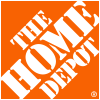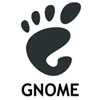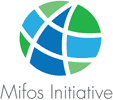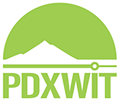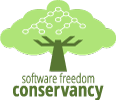Cloud Native sessions
The solutions that the cloud provides have grown rapidly over the past few years and show no signs of slowing. While existing frameworks allow for open source to thrive, they aren't completely open source themselves. So it's essential to understand how open source and cloud platforms can successfully cohabitate to drive software development forward .
9:00am–12:30pm Monday, July 15, 2019
Break the shackles of vendor lock-in. Sébastien Goasguen and Priyanka Sharma walk you through deploying serverless functions to any cloud provider of your choice.
Read more.
9:00am–12:30pm Monday, July 15, 2019
Lorenzo Fontana and David Calavera dive into how to understand and use extended Berkeley Packet Filters (eBPF) programs on Linux.
Read more.
1:30pm–5:00pm Monday, July 15, 2019
Once, nobody ran a database on top of Kubernetes or OpenShift. Now everyone's doing it, and you can too. Josh Berkus walks you through deploying and managing two different databases so you can get a taste of cloud native database hosting.
Read more.
1:30pm–5:00pm Tuesday, July 16, 2019
Kubernetes is a popular application delivery platform, but its built-in secret-management system does not serve the diverse needs of many organizations. Anubhav Mishra demonstrates how to run HashiCorp Vault on Kubernetes and use Vault to store and retrieve secrets for applications running on Kubernetes.
Read more.
1:30pm–5:00pm Tuesday, July 16, 2019
If you want to work with GraphQL but aren't sure where to get started, this is for you. No matter where you fit into the stack, Eve Porcello and Alex Banks give you everything you need to start building powerful GraphQL services that sit on top of any kind of data sources from the core features through adoption.
Read more.
11:00am–11:40am Wednesday, July 17, 2019
What happens when a company outgrows its very first data center or cloud region? Ideally, it uses its preexisting tools. Sean Kane outlines the challenges that New Relic faced while modernizing its infrastructure and demonstrates how it used processes and technology to successfully transform its monolithic data center into a repeatable system for stamping out new regions all around the world.
Read more.
11:00am–11:40am Wednesday, July 17, 2019
Service mesh has hit the cloud-native computing community like a storm, and we're starting to see gradual adoption across the enterprise. Christian Posta examines the strengths and weaknesses of respective service mesh implementations to help you decide which one is right for you or, more importantly, whether a service mesh is right at all.
Read more.
11:50am–12:30pm Wednesday, July 17, 2019
Bridget Kromhout and Jessica Deen lead a demo-fueled exploration of the differences between Helm 3 and the Helm of yore, tips for a successful rollout or upgrade, and opportunities to shape the project’s future.
Read more.
11:50am–12:30pm Wednesday, July 17, 2019
Developers working with Kubernetes still wonder what the optimal development workflow looks like. Ellen Korbes explores the capabilities of the tooling available in the current landscape and sees if it can offer end-to-end workflows that perform effectively in the real world.
Read more.
1:45pm–2:25pm Wednesday, July 17, 2019
Virtual machines (VMs) changed the world and containers swooped in shortly after. Learn about the deep technical differences between virtualization and containers with Kris Nova as she dives into the relevance and unique implementation of VMs in Kubernetes now and moving forward into the new world of cloud native.
Read more.
1:45pm–2:25pm Wednesday, July 17, 2019
It's become at truism in the past decade that building systems at scale, using nonrelational databases, requires giving up on the transactional guarantees afforded by the relational databases of yore. Tim Berglund explains that not only is a microservices estate built on Apache Kafka equivalent to a giant database, it's a database that can realize ACID semantics at scale.
Read more.
2:35pm–3:15pm Wednesday, July 17, 2019
Firecracker is an open source virtualization technology that is purpose-built for creating and managing secure, multitenant containers and functions-based services. Firecracker runs in user space and uses the Linux kernel-based virtual machine (KVM) to create microVMs. Arun Gupta and Meena Gowdar explore the foundations of Firecracker and examine how it's used with different technologies.
Read more.
2:35pm–3:15pm Wednesday, July 17, 2019
Imagine a programmable Kubernetes performance analysis tool that runs at cluster level without performance implications. Lorenzo Fontana dives into how tracing the execution of your programs and the kernel they rely on in a Kubernetes cluster can be a challenge. He outlines a possible approach using bpftrace and kubectl.
Read more.
4:15pm–4:55pm Wednesday, July 17, 2019
Join Jessica Deen to walk through two key workflows for Windows applications and containers: the lift and shift scenario and the modern .NET Core framework.
Read more.
4:15pm–4:55pm Wednesday, July 17, 2019
Understanding what problems a service mesh is designed to solve and leveraging its capabilities is key for application developers. This allows you to focus on the pieces you need to build your application and deliver business value. Neeraj Poddar dissects which service mesh capabilities you should care about and explores common questions from platform teams.
Read more.
5:05pm–5:45pm Wednesday, July 17, 2019
TinyGo takes the Go programming language to the "final frontier" where it could not go before...running directly on microcontrollers like Arduino, the BBC's micro:bit, and more. Ron Evans introduces you to TinyGo and demonstrates some live coding.
Read more.
5:05pm–5:45pm Wednesday, July 17, 2019
NATS is a mature, high-performance publish/subscribe messaging system that's part of the Cloud Native Computing Foundation (CNCF). Waldemar Quevedo explores how to build production-ready applications using NATS to address common issues that arise in cloud native environments, such as service discovery, scalability, self-healing, authentication/authorization, and low-latency RPC.
Read more.
11:00am–11:40am Thursday, July 18, 2019
Enterprises undergoing large transformations face a simple reality: there's never enough time to get the house in order. Subbu Allamaraju uses his experience at an organization going through change to walk you through patterns from several hundred critical production incidents and arrives at a few effective strategies for improving resilience of production environments.
Read more.
11:00am–11:40am Thursday, July 18, 2019
Michael Angstadt shares straightforward approaches to getting executives, stakeholders, and engineers to buy into transformational improvements like breaking apart your monolith, moving workloads into Kubernetes, paying down the technical debt of legacy code, increasing observability, and refactoring a core component to make it more testable.
Read more.
11:50am–12:30pm Thursday, July 18, 2019
FaaS functions on Kubernetes are increasingly popular, with a lot of talk about the developer productivity advantages but less about what it takes to use serverless functions in production. Soam Vasani walks you through six specific approaches, patterns, and best practices that you can use with any FaaS or serverless framework.
Read more.
1:45pm–2:25pm Thursday, July 18, 2019
Join Robert Aboukhalil for an introduction to WebAssembly—a powerful tool for porting applications to the web and speeding up data-intensive web apps. If you don’t know what WebAssembly is, how it works, or how to practically get started using it, now’s your chance.
Read more.
1:45pm–2:25pm Thursday, July 18, 2019
Systems are going cloud native, but do you know if your CI/CD is keeping up? Moving your systems to more complicated environments impacts your entire software supply toolchain. Christie Wilson walks you through how to use CI/CD to effectively build, test, and deploy cloud native applications.
Read more.
2:35pm–3:15pm Thursday, July 18, 2019
You built your system, you deployed it, you rolled it up in production, but it's just the beginning. The life of your system just started. Alex Borysov and Mykyta Protsenko outline their practical guide to building fault-tolerant systems with code and design patterns from REST and gRPC ecosystems, role of right product decisions, and importance of a proper communication culture.
Read more.
2:35pm–3:15pm Thursday, July 18, 2019
NASA's Earth Observing System Data and Information System (EOSDIS) is working toward a vision of a cloud-based, highly flexible system to meet its ever-growing and evolving data demands. Aimee Barciauskas walks you through Cumulus, the open source software supporting the NASA Earth Observation Division as it grows its data archive 10x in the next four years.
Read more.
4:15pm–4:55pm Thursday, July 18, 2019
Penetration testing (pentesting) a Kubernetes cluster simulates what a hacker might do when trying to attack a deployment. Jeff Thorne demonstrates how to use the open source testing tool kube-hunter to run penetration tests on your Kubernetes clusters and reveals misconfigurations that might leave you open to attack.
Read more.
4:15pm–4:55pm Thursday, July 18, 2019
With the optimizing Graal Compiler added to Java 11 and the language implementations in Truffle for Ruby, Python, JavaScript, and R, it becomes possible to run them natively on the Java virtual machine (JVM), even exchanging data between them. Michael Hunger explains how you can make use of that impressive capability.
Read more.
5:05pm–5:45pm Thursday, July 18, 2019
Distributed systems are the way we design architectures these days. Systems involve more moving parts as monoliths are continually decomposed into microservices. Derek Collison explains how technologies like the NATS messaging system that do not depend on IP for addressing and use multiple communication patterns allow modern architectures to be better suited to a modern environment.
Read more.
 Priyanka Sharma (GitLab),
Cullen Taylor (GitLab)
Priyanka Sharma (GitLab),
Cullen Taylor (GitLab)
 Josh Berkus (Red Hat)
Josh Berkus (Red Hat)
 Anubhav Mishra (HashiCorp)
Anubhav Mishra (HashiCorp)
 Sean Kane (New Relic)
Sean Kane (New Relic)
 Christian Posta (solo.io)
Christian Posta (solo.io)
 Ellen Korbes (Garden)
Ellen Korbes (Garden)
 Kris Nova (Independent)
Kris Nova (Independent)
 Tim Berglund (Confluent)
Tim Berglund (Confluent)
 Lorenzo Fontana (Sysdig)
Lorenzo Fontana (Sysdig)
 Jessica Deen (Microsoft)
Jessica Deen (Microsoft)
 Neeraj Poddar (Aspen Mesh)
Neeraj Poddar (Aspen Mesh)
 Ron Evans (The Hybrid Group)
Ron Evans (The Hybrid Group)
 Waldemar Quevedo Salinas (Synadia Communications, Inc)
Waldemar Quevedo Salinas (Synadia Communications, Inc)
 Subbu Allamaraju (Expedia Group)
Subbu Allamaraju (Expedia Group)
 Michael Angstadt (HEB Digital)
Michael Angstadt (HEB Digital)
 Soam Vasani (Cohesion.dev)
Soam Vasani (Cohesion.dev)
 Robert Aboukhalil (Invitae)
Robert Aboukhalil (Invitae)
 Christie Wilson (Google)
Christie Wilson (Google)
 Aimee Barciauskas (Development Seed)
Aimee Barciauskas (Development Seed)
 Jeff Thorne (Aqua Security)
Jeff Thorne (Aqua Security)
 Michael Hunger (Neo4j)
Michael Hunger (Neo4j)
 Derek Collison (Synadia Communications)
Derek Collison (Synadia Communications)



